In Ireland, the minimum legal drinking age is 18 years old, allowing individuals to purchase and consume alcohol in public places like pubs, bars, and restaurants. This age limit is strictly enforced through mandatory ID checks, fines, and penalties for establishments that serve alcohol to minors. Exceptions to minimum legal age exist for private residences, where minors can drink with parental consent and supervision, and during certain religious ceremonies.
Ireland adopted the Euro on January 1, 1999, for electronic transactions and on January 1, 2002, for cash transactions. This unified currency replaced the Irish Pound and facilitated economic integration within the Eurozone.
Ireland's legal drinking age aligns with many European Union countries but contrasts with the United States, where the legal age is 21. This difference reflects varying cultural attitudes and policy goals related to alcohol consumption.
Responsible drinking guidelines by the Health Service Executive (HSE) recommend that men consume alcohol beverages of no more than 17 standard drinks per week and women no more than 11, emphasizing moderation and avoiding binge drinking. Understanding alcohol content and seeking support for alcohol misuse are also crucial for maintaining a healthy lifestyle.
By following these regulations local laws and guidelines, individuals in Ireland can enjoy alcohol responsibly while minimizing potential health and social risks of other alcohol beverages.
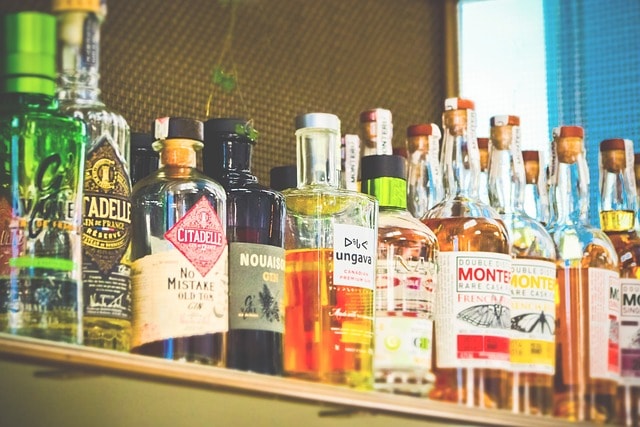
| Aspect | Details | Notes |
|---|---|---|
| Minimum Legal Drinking Age | 18 years | Applies to purchasing and consuming alcohol in public places |
| Private Residence Exception | Under 18 allowed with parental consent | Parents can supervise and educate about responsible drinking |
| Penalties for Minors | Fines up to €300 | Applies to purchasing or consuming alcohol |
| Penalties for Retailers | Fines up to €5,000 | Includes potential suspension or revocation of liquor license |
| Working at Pubs | Allowed for ages 16-17 (non-serving roles) | Restrictions on hours and tasks |
| Religious Ceremonies | Alcohol consumption allowed | Generally minimal and symbolic |
| Health and Safety Considerations | Important for minors | Education on ceremonial vs. recreational drinking |
Minimum Age for Purchasing Alcohol in Ireland
The minimum age for purchasing alcohol in Ireland is 18 years old. This legal requirement applies to buying alcohol in shops, pubs, restaurants, and any other venues where alcohol is sold. Proof of age is often requested, so it’s important to carry a valid ID, such as a passport or a driver's license, when attempting to purchase alcohol. This law aims to promote responsible drinking and protect the health and well-being of young people in Ireland.
The minimum age for purchasing alcohol was established to protect young people from the potential negative effects of alcohol consumption. These effects include health risks, such as alcohol poisoning and addiction, as well as social consequences, such as impaired judgment and increased likelihood of accidents or injuries. By setting the legal drinking age at 18, the Irish government aims to reduce these risks and encourage young person to responsible drinking habits.
Moreover, this age limit is in line with many other European countries, reflecting a common approach to alcohol regulation within the region. Establishments that sell alcohol are required to verify the age of their customers before serving them. This often involves checking identification, such as a driver's license, passport, or other official ID, to ensure that the individual is of legal drinking age.
Visiting Cork? Here are Best Things to do in Cork Ireland: Awesome Places To Visit, Outdoor Activities to Do
Are There Any Exceptions to the Legal Drinking Age in Ireland?
In Ireland, there are specific circumstances where exceptions to the legal drinking age apply. For example, individuals under the age of 18 may consume alcohol in a private residence with parental consent. This exception recognizes the role of parents in supervising and educating their children about responsible drinking within a controlled environment. However, it is important to note that this exception does not extend to public places or commercial establishments that sell alcohol.
Private Residences
In Ireland, one of the exceptions to the legal drinking age involves the consumption of alcohol in private residences. Parents or legal guardians are permitted to allow their underage children to drink alcohol under their supervision. This practice is viewed by some as an opportunity to educate young people about moderate and responsible alcohol consumption within a controlled environment. By introducing and drinking alcohol in a home setting, parents can monitor and guide their children’s drinking habits, potentially fostering a healthy attitude toward alcohol.
However, it is crucial for parents to weigh the potential risks and consequences of introducing alcohol to minors, even within the home. Alcohol can have adverse effects on the developing brain, and early exposure possess alcohol may increase the risk of developing alcohol-related problems later in life. Parents should ensure that their approach to teaching responsible drinking does not inadvertently encourage excessive or irresponsible behaviors. The goal should be to promote an understanding of moderation and the importance of drinking responsibly.
Visiting Dublin? Here are Best Things To Do In Dublin Ireland: In Depth Guide for 2024
Guidelines for Parents
To effectively teach responsible drinking, parents should set clear rules and expectations about alcohol consumption. This includes discussing the legal drinking age, the potential health risks of alcohol, and the social consequences of excessive drinking. Parents should model responsible drinking behaviors themselves, as children often emulate the actions of their parents.
Additionally, it is essential for parents to create an open and honest environment where their children feel comfortable discussing alcohol-related issues. This can help children develop a healthy respect for alcohol and understand the importance of making informed decisions. Supervised consumption should be limited to special occasions or family gatherings, rather than regular or frequent drinking.
Visiting Limerick? Here are Best Things to do in Limerick Ireland
Potential Risks
Despite the potential benefits of supervised drinking, there are significant risks associated with introducing alcohol to minors. Early exposure to alcohol can increase the likelihood of developing dependency or engaging in risky behaviors. It can also lead to negative health outcomes, such as impaired brain development, liver damage, and an increased risk of accidents or injuries.
Furthermore, the perception of alcohol as a normalized part of life may lower the perceived risks and increase the chances of binge drinking or alcohol abuse in the future. Parents need to balance the intent to educate with the need to protect their children from these potential harms.
Legal Considerations
Parents can legally allow their children to only legally drink alcohol in private residences, but this exception does not extend to public places or commercial establishments. Parents should be aware of the legal boundaries and ensure that any consumption of alcohol by minors occurs strictly within the home and under their supervision. Violating these legal boundaries can result in penalties and undermine the educational intent behind supervised drinking.
In conclusion, while allowing minors to drink under supervision in private residences is legal in Ireland, it comes with significant responsibilities and potential risks. Parents should approach this exception with caution, ensuring that they provide a safe and educational environment that promotes responsible drinking habits without encouraging excessive or harmful behaviors.
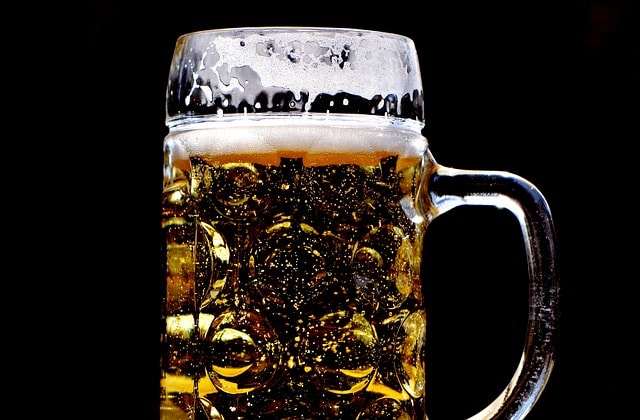
What are the Fines and Penalties for Violating the Legal Drinking Age in Ireland?
Violating the legal drinking age in Ireland can result in significant fines and penalties. For individuals under 18 caught purchasing or consuming alcohol, the penalties can include fines of up to €300. Retailers or establishments that sell alcohol to minors face even harsher penalties, including fines up to €5,000 and potential suspension or revocation of their liquor license.
Additionally, parents or guardians who allow minors to consume alcohol in public places can also be fined. These measures are designed to enforce the legal drinking age and promote responsible alcohol consumption.
Types of Penalties
Establishments that violate the legal drinking age laws in Ireland can face a range of penalties, including monetary fines, temporary closure, or permanent revocation of their license to sell alcohol. The type and severity of the penalty depend on the nature of the violation and whether it is a first-time or repeat offense.
Monetary fines can vary significantly based on the specific circumstances of the violation. For a first-time offense, fines may be relatively lower, but repeat offenses or severe breaches of the law can result in substantial fines that can have a significant financial impact on the business. The fines are designed to be a deterrent, ensuring that the cost of non-compliance outweighs any potential benefits of serving alcohol to minors.
Temporary and Permanent Closures
In addition to fines, establishments may face temporary closure if they are found to be in violation of the legal drinking age laws. Temporary closures can last from a few days to several weeks, depending on the severity of the infraction. This penalty not only affects the establishment’s revenue but also serves as a public reminder of the importance of adhering to the law.
For repeated or particularly egregious violations of alcohol law, authorities may revoke the establishment’s license to sell alcohol permanently. This is the most severe penalty and can result in the business being shut down entirely. The threat of losing their license to supply alcohol is a powerful incentive for establishments to comply with the legal drinking age requirements and to implement rigorous age verification procedures.
Enforcement and Inspections
Law enforcement officers play a crucial role in ensuring that establishments comply with the legal drinking age laws. They conduct regular inspections and undercover operations to monitor compliance. During inspections, officers check that businesses are verifying the age of their customers and adhering to other relevant regulations. Undercover operations involve officers posing as underage customers to test whether establishments properly check IDs and refuse service to minors.
These enforcement activities help maintain the integrity of the legal drinking age laws and ensure that businesses take their responsibilities seriously. Establishments supplying alcohol beverages that are found to be in violation during these inspections can face immediate penalties, reinforcing the importance of compliance.
Impact on Businesses
The financial and operational impact of fines and penalties can be significant for businesses. In addition to the immediate costs associated with fines and closures, establishments may also suffer reputational damage. Negative publicity and a loss of customer trust can have long-term consequences for the business, affecting its profitability and viability.
To mitigate these risks, businesses must prioritize compliance with the legal drinking age laws. This involves implementing effective age verification procedures, training staff to recognize valid IDs, and regularly reviewing and updating their practices to ensure compliance.
In conclusion, fines and penalties caught drinking alone are essential tools for enforcing the legal drinking age in Ireland. They serve as a deterrent to non-compliance and help ensure that businesses adhere to the law. The range of penalties, from monetary fines to permanent liquor license revocation, reflects the seriousness of the issue and the importance of preventing underage drinking. By imposing significant penalties on violators, Ireland can promote a culture of responsibility and safety within its alcohol-serving establishments.
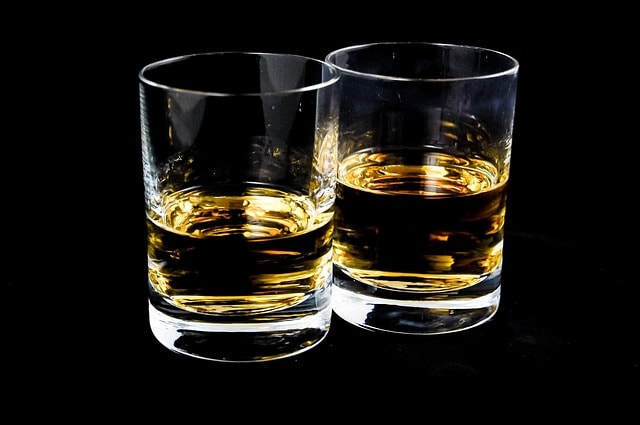
Is Drinking Allowed at Religious Ceremonies in Ireland?
Yes, drinking is allowed at religious ceremonies in Ireland, such as during the sacrament of Holy Communion in Christian services. However, the extent and nature of alcohol consumption can vary depending on the specific religious tradition and the strict laws and guidelines set by the religious organization.
Examples of Religious Ceremonies
A common example is found in Christian traditions, where minors may partake in wine during communion services. Communion, or the Eucharist, involves the consumption of bread and wine, symbolizing the body and blood of Christ. This sacrament is a central element of worship in many Christian denominations, including Roman Catholic, Anglican, and Orthodox churches. The amount of wine consumed is typically small, and the act is performed in a controlled, respectful setting.
Another example is the Jewish tradition of Kiddush, a blessing recited over wine or grape juice to sanctify the Sabbath and other holidays. During Bar and Bat Mitzvah ceremonies, Jewish boys and girls may also consume a small amount of wine as part of their rite of passage into religious adulthood.
Legal and Cultural Context
These exceptions are specifically limited to the ceremonial context and do not permit general consumption of alcohol outside of these religious events. The legal framework acknowledges the importance of preserving cultural and religious practices while still maintaining strict regulations around alcohol consumption for minors.
The cultural context of these practices often includes a strong emphasis on moderation, respect, and community. The ceremonial use of alcohol is imbued with religious significance and is not intended to encourage recreational drinking. This controlled and purposeful use contrasts with casual or social drinking, reinforcing the idea that alcohol consumption can have appropriate and inappropriate contexts.
Health and Safety Considerations
The amount of alcohol consumed during religious ceremonies is generally minimal, but it is still important to consider the health and safety of minors. Religious leaders and parents should ensure that these practices are conducted responsibly and that minors understand the symbolic nature of their participation. Educating young people about the difference between ceremonial and recreational drinking can help them develop a healthy relationship with alcohol.
Broader Implications
These religious exceptions also highlight the broader debate about alcohol consumption and cultural practices. While some argue that any form of underage drinking should be strictly prohibited, others believe that culturally and religiously significant practices should be respected and preserved. The key is finding a balance that respects religious traditions while protecting the health and well-being of young people.
In summary, the exception for religious ceremonies allows minors to consume small amounts of alcohol in specific, controlled contexts. This exception acknowledges the cultural and spiritual significance of such practices while ensuring that they do not encourage broader underage drinking. By maintaining a clear distinction between ceremonial and recreational alcohol consumption, this exception supports the preservation of important cultural traditions within a framework of responsible and informed participation.
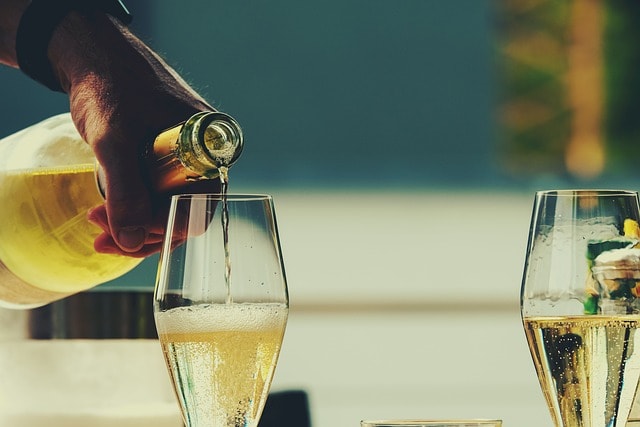
Can Minors Work at Pubs in Ireland?
Yes, minors can work at pubs in Ireland under certain conditions. Individuals aged 16 and 17 may be employed in pubs, but they are restricted from serving alcohol. They can work in roles such as food service or cleaning. Additionally, there are regulations on the hours they can work, including a limitation on working late at night. Employers must ensure that the working conditions comply with the Protection of Young Persons (Employment) Act.
Legal Framework
The legal framework governing this exception includes several stipulations designed to protect young workers. Firstly, minors working in licensed premises must be supervised by an adult at all times. This supervision ensures that young employees are not exposed to inappropriate situations and that their work is conducted safely and responsibly. Secondly, the nature of their work must not involve serving or selling alcohol directly to customers unless under strict supervision and in compliance with specific regulations.
Working Hours and Conditions
The working hours for minors are also regulated to ensure their employment does not interfere with their education or well-being. During the school year, there are restrictions on the number of hours they can work each week, as well as the times of day they can be employed. For instance, minors are typically not allowed to work late-night shifts, which are common in the hospitality industry. These regulations help balance work opportunities with the need for adequate rest and academic focus.
Educational Impact
One of the primary concerns with allowing minors to work in licensed premises is the potential impact on their education. To address this, the law stipulates that employment must not interfere with their schooling. Employers are encouraged to schedule shifts around the school timetable and to be flexible during exam periods. This ensures that young workers can gain valuable job experience without compromising their academic performance.
Health and Safety
Health and safety regulations are particularly stringent for minors working in environments where alcohol is served. Employers are required to provide appropriate training on handling alcohol, dealing with customers, and understanding the legal implications of underage drinking. This training helps young employees navigate their roles responsibly and safely.
Social and Economic Benefits
Allowing minors to work in licensed premises provides several social and economic benefits. It offers young people the opportunity to gain practical work experience, develop job skills, and earn money. This early exposure to the workforce can instill a strong work ethic, improve interpersonal skills, and provide a sense of independence and responsibility. Additionally, it can help young people explore career opportunities in the hospitality industry.
Supervision and Mentorship
Supervision by experienced staff members also provides mentorship opportunities. Young employees can learn from their older colleagues, gaining insights into customer service, teamwork, and problem-solving. This mentorship can be invaluable in helping them navigate their first job experiences and preparing them for future careers.
Challenges and Considerations
Despite the benefits, there are challenges associated with employing minors in licensed premises. Ensuring that all legal requirements are met can be demanding for employers, who must balance operational needs with regulatory compliance. Additionally, young workers may face challenges in managing work-life balance, particularly during busy periods.
Employers need to be aware of the unique needs and limitations of young workers, providing support and guidance to help them succeed. This includes understanding the pressures they face, offering flexible scheduling, and creating a positive work environment that fosters growth and development.
In conclusion, while individuals aged 16 and 17 are permitted to work in licensed premises in Ireland, this is subject to strict regulations designed to protect their health, safety, and education. Supervision, limited working hours, and health and safety training are crucial components of this legal framework. By adhering to these regulations, employers can provide valuable work opportunities for young people, helping them gain experience and develop skills while safeguarding their well-being. This balanced approach ensures that young workers can benefit from employment in the hospitality industry without compromising their future prospects.
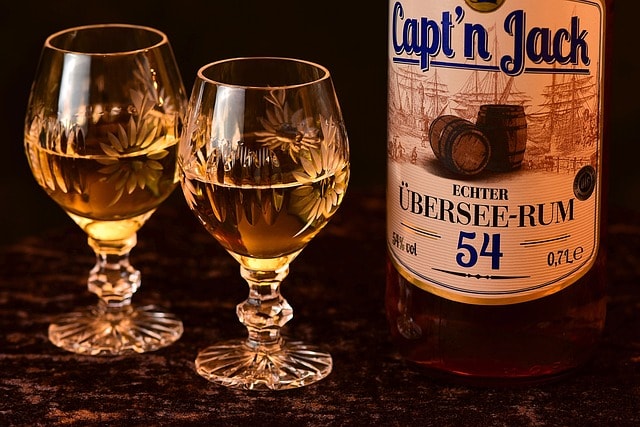
How is the Legal Drinking Age Enforced in Ireland?
The enforcement of the legal drinking age in Ireland involves several measures to ensure compliance with drinking laws and to prevent underage drinking. These measures include ID checks, fines, and penalties for establishments that serve alcohol to minors, as well as public awareness campaigns.
ID Checks and Verification
One of the primary methods of enforcing the legal drinking age in Ireland is the mandatory ID check. Establishments that sell or serve alcohol beverages, including pubs, bars, restaurants, and shops, are legally required to verify the age of their customers before serving or selling them alcohol. This verification process is crucial in preventing underage drinking and ensuring that alcohol is consumed responsibly by individuals who are legally permitted to do so.
Accepted Forms of Identification
Acceptable forms of identification in Ireland include driver’s licenses, passports, and national ID cards. These forms of ID are considered reliable and are designed to be difficult to forge, making them effective tools in age verification. Some establishments may also accept student ID cards or other forms of government-issued identification, provided they include a photograph and a date of birth. However, it is up to the discretion of each establishment to determine which IDs they will accept.
Training for Staff Members
Staff members in establishments that sell alcohol receive training to recognize valid IDs and to spot potential forgeries. This training is essential as it equips staff with the knowledge and skills needed to perform ID checks accurately and efficiently. They learn how to examine IDs for signs of tampering, verify the authenticity of the document, and ensure that the person presenting the ID matches the photo and information provided. Regular training updates are also important to keep staff informed about new types of IDs and emerging trends in forgery.
Penalties for Non-Compliance
Failure to verify the age of customers can result in significant penalties for the establishment. These penalties are designed to be severe enough to act as a deterrent against non-compliance. They can include substantial fines, temporary closure of the business, or even the revocation of the establishment’s license to sell alcohol. The exact penalty depends on the severity and frequency of the violations, as well as the discretion of the enforcing authorities.
Law Enforcement and Inspections
To ensure compliance, law enforcement officers conduct regular inspections and undercover operations. During these operations, officers may pose as underage customers to test whether establishments are properly checking IDs. These inspections are crucial for maintaining the integrity of the legal drinking age laws and ensuring that businesses adhere to the regulations. Establishments found to be in violation can face immediate consequences, reinforcing the importance of diligent ID checks.
ID checks serve as the first line of defense in preventing underage drinking. By verifying the age of customers, establishments help ensure that alcohol is consumed by individuals who are legally allowed to do so. This not only protects young people from the potential harms of alcohol but also promotes responsible drinking habits within the broader community. Effective ID checks also contribute to public safety by reducing the likelihood of alcohol-related incidents involving minors.
In conclusion, mandatory ID checks are a critical component of enforcing the legal drinking age in Ireland. Acceptable forms of identification, thorough training for staff, strict penalties for non-compliance, and regular inspections by law enforcement all play essential roles in ensuring that establishments adhere to these regulations. By maintaining rigorous ID check practices, Ireland can help prevent underage drinking and promote a safer, more responsible drinking culture.
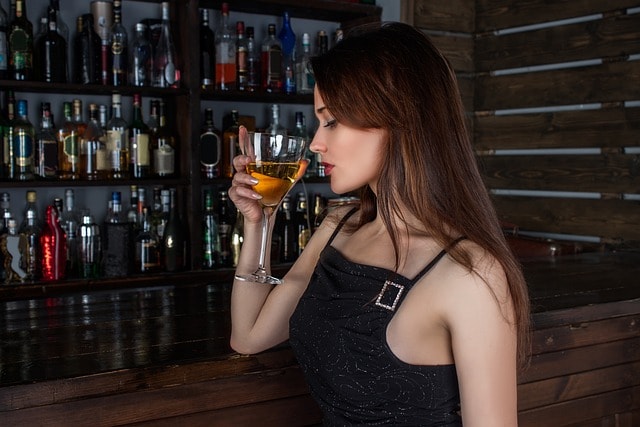
Importance of Public Awareness Campaigns To Enforce Legal Drinking Age in Ireland
Public awareness campaigns play a crucial role in enforcing the legal drinking age in Ireland. These campaigns aim to educate both the public and business owners about the importance of adhering to the legal drinking age and the consequences of underage drinking. Through various media channels, government and non-governmental organizations work together to spread awareness and promote responsible drinking behaviors.
Objectives of Public Awareness Campaigns
The primary objective of public awareness campaigns is to reduce underage drinking by informing the public about the legal drinking age and the risks associated with alcohol consumption by minors. These campaigns highlight the potential health, social, and legal consequences of underage drinking, emphasizing the importance of following the law.
Another key objective is to educate business owners and staff about alcohol laws and their responsibilities in preventing underage drinking. By providing information on the legal requirements and best practices for age verification, these campaigns help ensure that establishments are equipped to comply with the law and prevent minors from accessing alcohol.
Media Channels and Strategies
Public awareness campaigns utilize a variety of media channels to reach their target audiences. These channels include television, radio, social media, print media, and public events. By leveraging multiple platforms, campaigns can effectively disseminate their messages to a wide audience.
Television and radio advertisements are particularly effective for reaching a broad audience, including parents, young people, and business owners. These ads often feature impactful messages and visuals designed to capture attention and convey the importance of the legal drinking age.
Social media campaigns are also crucial in today’s digital age. Platforms like Facebook, Instagram, and Twitter allow for targeted alcohol advertising, and engagement with specific demographics. Social media campaigns can include informational posts, interactive content, and real-life stories that resonate with young people and encourage them to make responsible choices regarding alcohol.
Print media, such as posters, flyers, and brochures, can be distributed in schools, community centers, and healthcare facilities to reach parents and guardians. These materials provide detailed information about the legal drinking age and the risks of underage drinking, serving as valuable resources for families.
Public events, such as school presentations, community workshops, and health fairs, offer opportunities for direct engagement with the public. These events allow for interactive discussions, Q&A sessions, and the distribution of educational materials, fostering a deeper understanding of the issues.
Collaborations and Partnerships
Successful public awareness campaigns often involve collaborations and partnerships between government agencies, non-governmental organizations, schools, and community groups. These partnerships enable the pooling of resources and expertise, enhancing the reach and impact of the campaigns.
For example, collaborations with schools can facilitate the delivery of educational programs and materials to students, helping to instill responsible attitudes toward alcohol from a young age. Partnerships with healthcare providers can ensure that information about the risks of underage drinking is included in routine health education and counseling.
Measuring Effectiveness
To ensure that public awareness campaigns are effective, it is important to measure their impact. This can be done through surveys, focus groups, and analysis of behavioral data. Evaluating the reach and effectiveness of campaigns helps identify areas for improvement and ensures that resources are used efficiently.
Surveys and focus groups can provide insights into public attitudes and behaviors related to alcohol consumption. These tools can help assess the extent to which campaigns have increased awareness and influenced behavior. Analyzing data on underage drinking rates and compliance with legal drinking age laws can also provide valuable feedback on the effectiveness of campaigns.
Conclusion
In conclusion, public awareness campaigns are a vital component of enforcing the legal drinking age in Ireland. By educating the public and business owners about the purchase age, the importance of adhering to the law against underage person alcohol and the risks associated with underage drinking, these campaigns help promote responsible drinking behaviors. Utilizing a variety of media channels, forming partnerships, and measuring effectiveness are key strategies for ensuring the success of these campaigns.
How Does Ireland's Legal Drinking Age Compare to Other Countries?
Ireland's legal drinking age of 18 is relatively common and aligns with the legal drinking ages of many other countries, particularly within Europe. However, there are notable differences in the legal drinking ages across various regions, reflecting cultural attitudes and government policies towards alcohol consumption.
European Union
In the European Union, the legal drinking age varies between countries, but many, like Ireland, set the legal purchase age at 18. Countries such as France, Germany, and Spain also have a legal drinking age of 18, allowing young adults to purchase and consume alcohol in public places. This uniformity supply alcohol beverages within the EU facilitates easier travel and cultural exchange among member states, as travelers from one EU country to another often encounter similar legal standards regarding alcohol consumption.
Some EU countries, however, have different age limits and restrictions for different types of alcoholic beverages buying alcohol. For instance, in Germany, individuals can purchase beer and wine at the age of 16, but must be 18 to buy spirits. These variations reflect the differing cultural attitudes towards alcohol within Europe, where beer and wine are often considered less harmful and more culturally integrated than spirits.
United States
In contrast, the United States has a higher legal drinking age of 21. This difference is rooted in historical and social factors, including efforts to reduce alcohol-related accidents and health issues among young people. The National Minimum Drinking Age Act of 1984 mandated that states raise their legal drinking age to 21 or face a reduction in federal highway funds. As a result, all 50 states adopted the age of 21 as the legal drinking age for purchasing and consuming alcohol.
The higher legal drinking age in the US is aimed at curbing underage drinking and its associated risks, such as drunk driving, alcohol poisoning, and long-term health consequences. While this policy has been effective in reducing alcohol-related incidents among minors, it also creates a stark contrast with countries like Ireland, where young adults gain legal access to alcohol three years earlier.
Cultural Context
Cultural attitudes towards alcohol consumption also play a significant role in determining legal drinking ages. In Mediterranean countries like Italy and Greece, where wine is a traditional part of family meals, young people are often introduced to alcohol in a controlled and moderate environment. This cultural integration can lead to a more responsible approach to drinking, which may influence the legal drinking age policies in these regions.
In summary, while Ireland's legal drinking age of 18 is common within the European Union, it differs significantly from the United States' legal drinking age of 21. These variations reflect differing cultural attitudes, historical contexts, and policy goals related to alcohol consumption and public health.
What are the Guidelines for Responsible Drinking in Ireland?
The guidelines for responsible drinking in Ireland are designed to promote safe and moderate alcohol consumption, minimize health risks, and encourage a balanced lifestyle. These guidelines provide recommendations on the maximum number of alcoholic drinks that can be consumed daily or weekly to reduce the risk of alcohol-related harm.
Recommended Limits
The Health Service Executive (HSE) of Ireland provides specific guidelines for alcohol consumption. For men, the recommended limit is up to 17 standard drinks per week, with no more than 4-5 standard drinks on any one day. For women, the recommended limit is up to 11 standard drinks per week, with no more than 2-3 standard drinks on any one day. A standard drink in Ireland typically contains about 10 grams of pure alcohol, which is roughly equivalent to a half-pint of beer, a small glass of wine, or a measure of spirits.
Importance of Moderation
Moderation is key to responsible drinking. Consuming alcohol within the recommended limits helps minimize the risk of developing health problems such as liver disease, cardiovascular issues, and certain cancers. It also reduces the likelihood of accidents, injuries, and other social harms associated with excessive drinking. The guidelines encourage individuals to pace themselves, drink slowly, and alternate alcoholic beverages with water or non-alcoholic drinks.
Avoiding Binge Drinking
Binge drinking, defined as consuming large amounts of alcohol in a short period, poses significant health risks. The guidelines advise against binge drinking and emphasize the importance of spreading alcohol consumption evenly over the week. Avoiding binge drinking helps prevent acute health issues such as alcohol poisoning and reduces the risk of long-term consequences.
Understanding Alcohol Content
Being aware of the alcohol content in different beverages is crucial for responsible drinking. Different types of alcoholic beverage and drinks contain varying amounts of alcohol, and understanding these differences can help individuals make informed choices. Labels on alcoholic beverages provide information on alcohol by volume (ABV), which indicates the percentage of alcohol in the drink. Familiarizing oneself with these labels and knowing how to calculate standard drinks can aid in managing alcohol intake effectively.
Seeking Help and Support
For those who struggle with alcohol misuse or addiction, seeking help and support is essential. Ireland offers various resources, including counseling services, support groups, and treatment programs, to assist individuals in managing their alcohol consumption. Recognizing the signs of problematic drinking and taking proactive steps to address them can lead to healthier and more fulfilling lives.
FAQs On Legal Drinking Age in Ireland
What is the legal drinking age in Ireland?
The legal drinking age in Ireland is 18 years old. Individuals must be at least 18 to purchase alcohol beverages, buy alcohol, and consume alcohol in public places such as pubs, bars, and restaurants.
Are there any exceptions to the legal drinking age in Ireland?
Yes, there are exceptions. Minors may consume alcohol in private residences with parental consent and under supervision. Additionally, minors may consume alcohol as part of certain religious ceremonies.
How is the legal drinking age enforced in Ireland?
The legal drinking age is enforced through mandatory ID checks, fines, and penalties for establishments that serve alcohol to minors. Public awareness campaigns also play a role in promoting compliance with the law.
How does Ireland's legal drinking age compare to other countries?
Ireland's legal drinking age of 18 is common within the European Union but differs from the United States, where the legal drinking age is 21. These differences reflect varying cultural attitudes and policy goals.
What are the guidelines for responsible drinking in Ireland?
The HSE recommends that men consume no more than 17 standard drinks per week and women no more than 11 standard drinks per week. The guidelines emphasize moderation, avoiding binge drinking, and understanding alcohol content.
